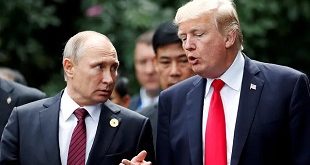
Museveni’s new team at Electoral Commission in trouble even before it starts work
When outgoing Electoral Commission Chairman Baddru Kigundu announced the Presidential election results on Feb. 20, there was a sizable backlash from a cross-section of Ugandans. Many of them did not believe the results were a true reflection of the will of the people and accused him of presiding over a sham election.
Many insulted and attacked him on social media and there was satire about him declaring different results for all sorts of competitions including those about the English Premier Football league.
But this was not the first time Kigundu was getting that kind of reaction after announcing election results. In fact, the very first Presidential election he presided over in 2006 was challenged in court. Three Supreme Court Judges out of the panel of 7 were in favour of annulling the election over irregularities.
But the disdain in the last election was worse. Kigundu, had during the campaigns publicly admitted that he did not want to nominate President Yoweri Museveni’s leading rival, Kizza Besigye because of the comments he had made about the Electoral Commission.
Besigye’s supporters argued that there was no way a person who wanted to block their candidate’s nomination would announce him winner even if he won the election.
That’s why when he declared Museveni winner with 60.7% of the vote many were not surprised.
When his term ended on Nov 14, his detractors were happy. Some like Democratic Party President Nobert Mao posted on social media that his absence will be more felt than his presence.
But that happiness was short lived. On Nov 18, Museveni nominated another team to preside over the commission. It was then that Kigundu’s detractors possibly realised the problem was not Kigundu. They now say the problem is the system and the new commission might not be any different from the Kigundu-led commission.
In fact, they fear the new commission could be worse because of the history that its new chairman Justice Simon Byabakama shares with Besigye, the person they feel was the most wronged against by the Kigundu-led Commission.
Byabakama, as the Deputy Director of Public Prosecution was the lead prosecutor of the rape case against Besigye in 2005 which Court dismissed for lack of evidence
Justice JB. Katutsi declared the evidence against Besigye “inadequate even to prove a debt; impotent to deprive of a civil right; ridiculous for convicting of the pettiest offence; scandalous if brought forward to support a charge of any grave character; and monstrous if to ruin the honour of a man who offered himself as a candidate for the highest office of this country.”
Byabakama’s team will also be composed of former Nabisunsa Girls’ School Headmistress Hajjat Aisha Lubega as the Deputy Chairperson, Mustafa Ssebagala Kigozi of the Uganda Manufacturers’ Association, Simon Peter Emorut, George Piwang and former Kajara County MP Stephen Tashobya as members.
Besigye, who some thought would be happy over the departure of Kigundu, the man who presided over three of the four elections he has participated in, is not amused at all.
He says there will not be any difference in performance of the electoral body.
“There is no way an EC can perform differently under a dictatorship,” he says. “The EC, like all institutions of a military dictatorship are instituted to serve the dictatorship not the people. And it is not just the EC but all the institutions in this country. Focusing on only the EC will be missing the point.”
Besigye is not the only one who is not very optimistic about the new EC team. Chairman of the NGO Forum Richard Sewakiryanga agrees entirely with him.
“I don’t have any different thoughts about this commission from the previous one,” he said. “How can it be any different when the appointment process and the appointing authority are the same?”
The Citizens Coalition on Electoral democracy Uganda (CCEDU) coordinator Crispin Kaheru says the change of individuals will not change anything as long as the process remains the same.
“I think what Ugandans will continue to ask themselves is how consultative and inclusive the process of appointing this EC was, given the sentiments around the inclusivity of the process that have been raised by different quotas,” Kaheru said.
He added: “Let us not forget that the framework within which they will work is not different from that within which Kigundu and his team worked. We are therefore likely to see the new EC challenged by the same structural and institutional gaps that the past commission grappled with.”
 The Independent Uganda: You get the Truth we Pay the Price
The Independent Uganda: You get the Truth we Pay the Price



